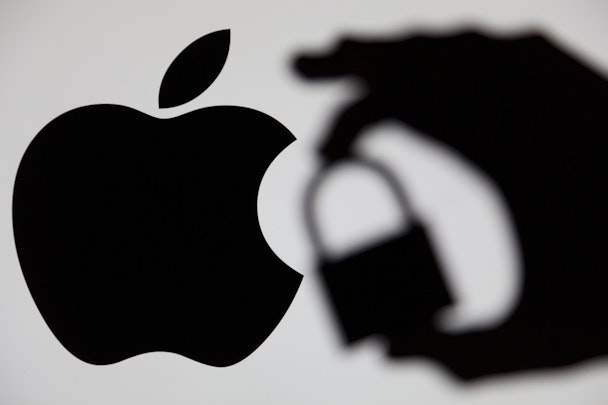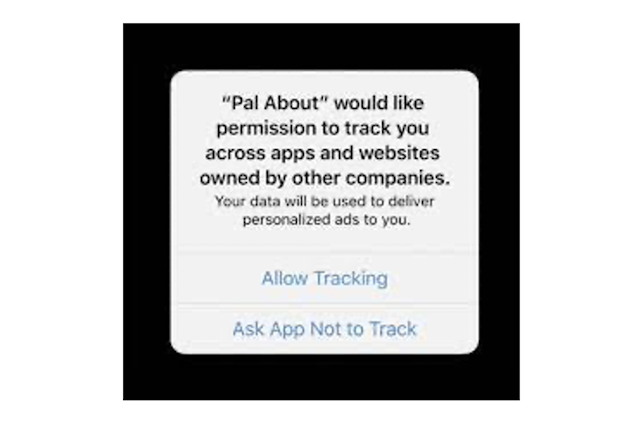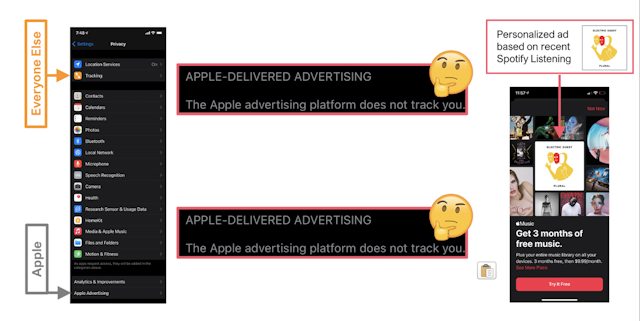Apple’s iOS 14.5 privacy updates: ‘more purgatory than paradise’ for users
Today’s the day. Apple’s new privacy updates are here, but it is certainly not a moment to celebrate, writes Epsilon's Sara Camden. As a long-time Apple consumer and digital advertising veteran, she explains why Apple’s new update positions the brand as the private resort from hell for both users and advertisers.

Checking in to Apple’s private island resort? The amenities are enticing, starting with the iPhone, which reinvented online travel, and the App Store that CEO Tim Cook recently described as a ‘miracle’ to Kara Swisher. There’s no need to hang a privacy sign on the door when you’re staying at this slice of Eden because no one slips past Apple, including their users.
As a loyal fan and high-value customer of Apple since the release of iTunes, I’ve enjoyed my stay for the most part. But recently, I’ve had growing concerns about where they’re headed to next, and I’m afraid we’re all just along for the ride. A ship is circling the harbor about to dock and offload Application Tracking Transparency, or ATT – a set of tools to help Apple reshape the landscape of the island. ATT boasts ‘privacy’ as its defining quality, but I’m not convinced the cargo matches the brochure.
This update slated to start rolling out today will put up roadblocks in front of a vast portion of popular apps presenting consumers with a blunt binary choice devoid of color or context: ‘Allow Tracking? Yes or No’, with no direct option for the app publisher to explain to the user how tracking can benefit them.

My day job for about 15 years now has focused on personalized digital advertising, as well as the technologies and online publishers that support this ecosystem. This space has a self-regulating quality in that advertising clients are happiest when their customers are happy. This comes from achieving mutual value and trust. But not enough investment has been made on the part of the advertising industry to educate consumers about the value exchange that occurs when they securely share insights about themselves.
The returns delivered to consumers include broader selection when making purchase choices, access to diverse, quality content at low or no monetary cost, and more relevant online experiences overall. This void has given major tech platforms like Apple the opportunity to control the narrative rather than the brands and content publishers consumers have relationships with. Bad apples like Cambridge Analytica have emboldened them to spoil the bunch. With sales of Apple’s most popular devices leveling off, ATT lets them open up a lot of lush landscape for building new empires and orchards in software, services and content all protected by an entire ocean.
Here’s a quick three-stop tour:
First stop: Content
Apple Island is creating an expanding list of things to do in the form of subscription-based apps that can be purchased a la carte or packaged up neatly in a bundle called Apple One. The suite of utility-named offerings include TV+, Apple Music, News, Arcade and Fitness. Like a timeshare vacation property, the app subscription model delivers attractive reoccurring revenue, while also disincentivizing travelers from exploring other destinations in the form of competing apps. Some of these competing apps such as Spotify, a head-to-head rival of Apple Music, have understandably taken issue with the anticompetitive implications of this business environment (see the cause and effect on Spotify below).
Second stop: Curation
In the name of protecting Apple’s ‘miracle’, Tim Cook has been expressing a need for curation in his recent interviews. This comes in the form of reclaiming control from the advertising industry over what apps survive and thrive in the App Store alongside those on the Apple One menu, which Eric Seufert has done some great analysis about.
Just as exclusive resorts operate in the real world, Apple prefers you dine at their establishments. Now that you’re on their island, Apple has full control over the food supply chain, and charges outside app developers a hefty import tax of 15-30% of their revenue. Personalized advertising that encourages app downloads has proven quite effective for app publishers without regard for how lucrative the margins are for Apple, and island management aims to change that when ATT gets to port.
Third stop: Advertising
Plans for a sister resort on the island are starting to take shape, and I sense they are far grander than the tweaks to ad slots in the App Store FT caught recently. When ATT arrives, which the advertising industry expects will inhibit the ability to reach Apple’s users in meaningful ways, a lot of prime real estate gets cleared that Apple exclusively can develop. Jeff Bezos famously had a ‘change of heart’ a few years ago after blasting the advertising industry on repeat up until that point, and now Amazon is both the No 1 advertiser in the world as well as a booming seller of personalized ads themselves. I suspect Apple is gearing up to steal a page from Amazon’s playbook in the name of ‘privacy’.
A quick tour of the latest privacy settings on an iPhone reveals that Apple has carved out a discreet, private coastal villa for themselves called ‘Apple Advertising’, which you have to scroll all the way to the bottom of the screen to find. Meanwhile, every other app publisher is relegated to a jarring bright orange inland flophouse at the top called ‘Tracking’, complete with a kill switch that can block them from even asking for your permission to engage in what Apple says is tracking of you.

By their definition, ‘Tracking’ means to observe some subset of a user’s behavior across apps or websites you do not own. Apple emphatically claims they don’t engage in ‘tracking’, which begs the question then of how they have been able to repeatedly show me highly personalized ads based on my Spotify listening promoting Apple Music, an app I hadn’t even thought about since they force-fed all customers a U2 album. These ads make an aggressive attempt to lure me away from this noted archrival, with the whole experience running afoul of Apple’s meticulously manicured privacy branding and leaving a very bad taste.
The vision of privacy that Apple Island intends to adopt feels much more like purgatory than a paradise of protection to me, and once we’re here, can we ever leave, or will we just be prisoners of our own device where Apple controls what we see and how much it costs? Apple doesn’t just own the island — with neighboring island Google, they collectively control nearly all the modes of transport for getting in or out, and the two have struck probably the richest business deal of all time netting Apple $8-12bn a year to make sure it stays that way. Before this trip goes any further, I’d like Apple to practice the transparency they preach about and shed some light on exactly what’s in store for us on their island.
Sara Camden is director, product marketing, Epsilon.
